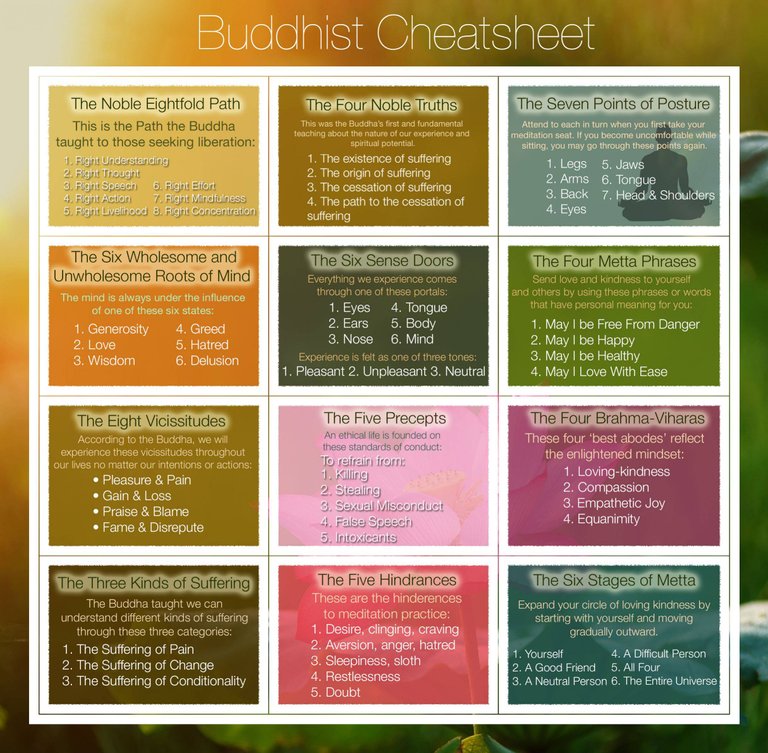The Buddha set up rituals that could act as aids or vehicles in the inner journey towards the discovery of one's own true nature.
The Buddha was not interested in setting up a religion filled with religious dogma and metaphysical stances. He wished merely to give practical directions for people so that they could themselves permanently end their suffering. This principle is illustrated in the celebrated analogy of the poison arrow.
The Buddha was not anti-tradition, but he did not believe in tradition for tradition's sake. He taught that one should take the Truth for one's own, wherever it is found, and discard that which is not the Truth. The system of lineage mentioned above is a way of ensuring that the Truth which the Buddha had discovered would not be lost.
The Buddha encouraged people of all classes and of both sexes to seek for enlightenment in this very life.
The Buddha did not deny the supernatural and stated clearly that there were gods, spirits, ghosts, and demons, etc. He taught that spiritual powers could be developed and that all enlightened beings have them. Buddha did not recommend the worship of the gods and condemned fortune-telling and the display of spiritual powers without good reason.
Excerpted Vajra Bodhi Sea: A Monthly Journal of Orthodox Buddhism, Feb., 1999, pp. 41-43

Hi! I am a robot. I just upvoted you! I found similar content that readers might be interested in:
http://online.sfsu.edu/rone/Buddhism/Misconceptions%20about%20Buddhism.htm
Go away cheetah. This post was sourced as you can plainly see.
Besides that I would never have found this article if walkthisway had not posted it. 🐓🐓